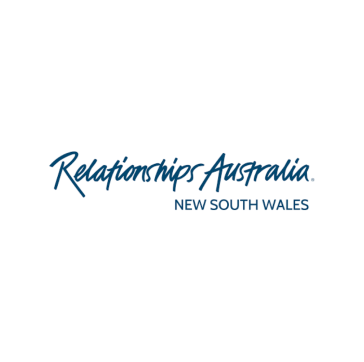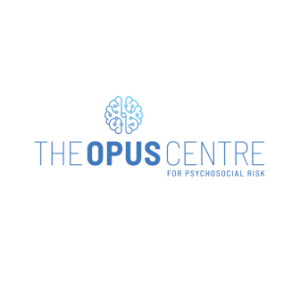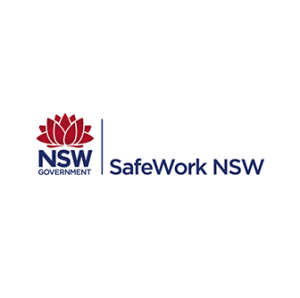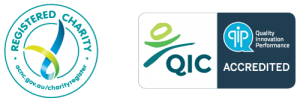Interpersonal Relationships
The relationships we have at work are pivotal to our wellbeing. Healthy workplaces are built on cultures of trust, respect, and support, reflected throughout the organisation.
When people feel safe, heard, valued, and connected, they thrive, and their workplaces thrive too.


Elisabeth Shaw
BA (Hons); Masters in Management; Masters in Couple and Family Therapy; Masters in Professional Ethics, FAPS (FCCOUNP; FCCLP); GAICD.
Elisabeth is a clinical and counselling psychologist who has focused her whole career on how people live and work well in relationships and communities. In addition to leadership in clinical practice, governance and professional ethics, she also coaches executives across industries.
She has taught at ACU, UNSW and Newcastle universities in areas of clinical practice, management and professional ethics, and routinely presents and publishes work in these areas. She is a Fellow of the Australian Psychological Society, a senior consultant at The Ethics Centre, a graduate of the Australian Institute of Company Directors, and sits on a number of Boards. In 2023 she completed Leadership for the 21st Century Program, John F. Kennedy School of Government at Harvard University, Executive Education Program.
Amongst all this, Elisabeth is currently serving as the CEO of Relationships Australia (NSW).

Regularly engage in team-building activities, take informal opportunities to build closeness with colleagues, support each other during stressful periods, celebrate each other's successes.
For individuals within a team to identify their own professional boundaries, and to communicate and maintain each others boundaries. To respect diversity and avoid engaging in or encouraging harmful behaviors.
If conflicts arise, engage in constructive dialogue or seek mediation. To be open to the idea that conflicts could arise because individuals are going through a hard time - show empathy and understanding towards peers during this time.

Develop a relationship of trust and safety within the team. This can involve having the manager community regularly and openly with team members, personally and publically recognising and appreciating their efforts. It could also involve having the manager encourage team collaboration, as well as building a culture of trust and fondness between team members.
Set clear expectations for professional behaviour, prevent favoritism, and be attentive to team dynamics to prevent conflicts.
Address conflicts immediately and professionally, provide support and guidance to team members who are struggling. If in doubt, seek further guidence from appropriate channels.

Organise regular team-building activities, encourage cross-departmental collaboration, provide platforms for employees to connect and support each other.
Determine areas of potential risk (such as bullying, harrassment etc), establish methods to determine whether these things are occuring, should they occur. Establish policies to prevent these potentialities, and consistently enforce these policies
Take all reports of conflicts and issues seriously, ensure fair investigations, provide resources for conflict resolution.

Government Agencies have produced many legislations, policies, resources and tools to help with workplace wellbeing. Examples are given for those in NSW only, do look around for similar resources in your state.
- For Employers: NSW Government offers a free Workplace Wellbeing Assessment Tool
- For Employers: The Public Service Commission also has a package of resources in this area.
- For Small Businesses: The NSW Government also funds a one-on-one coaching program. This is available for free to small business owners.
- SafeWork has resources which many of the topics covered in this initiative, including: Relationships, Over/Underwork, and much more.
There is a lot of informational resources and free support options from organisations outside those you work for. Examples are given for those in NSW only, do look around for similar resources in your state.
Informational Resources
- For Relationships: Relationship Australia NSW
- For Over/Under Work: The Opus Centre
- For Life Transitions: Transitioning Well and their Career Transition Series
A range of paid and cost effective support options are available to you. Examples are given for those in NSW only, do look around for similar resources in your state.
- Professional mental health services: For guidance in the mental health services within NSW, make a free call to the WayAhead Mental Health Directory
- Other professionals may be able to help for other specific needs, such as legal support, financial support etc.
- Coaches and other Educators can give positive skills and guidance in specific areas
 General Employees / Peers
General Employees / Peers

Building positive wellbeing
Regularly engage in team-building activities, take informal opportunities to build closeness with colleagues and understand their job roles, support each other during stressful periods, celebrate each other's successes.
Preventing possible harms
For individuals within a team to identify their own professional boundaries, and to communicate and maintain each others boundaries. To respect diversity and avoid engaging in or encouraging harmful behaviors.
Addressing existing harms
If conflicts arise, engage in constructive dialogue or seek mediation. To be open to the idea that conflicts could arise because individuals are going through a hard time - show empathy and understanding towards peers during this time.
 Managers and Leaders
Managers and Leaders

Building positive wellbeing
Develop a relationship of trust and safety within the team. This can involve having the manager community regularly and openly with team members, personally and publically recognising and appreciating their efforts. It could also involve having the manager encourage team collaboration, as well as building a culture of trust and fondness between team members.
Preventing possible harms
Set clear expectations for professional behaviour, avoid the appearance of favoritism, and be attentive to team dynamics to prevent conflicts.
Addressing existing harms
Address conflicts immediately and professionally, provide support and guidance to team members who are struggling. If in doubt, seek further guidance from appropriate channels.
 The Organisation / Employer
The Organisation / Employer

Building positive wellbeing
Organise regular team-building activities, encourage cross-departmental collaboration, provide platforms or facilitate opportunities for employees to connect and support each other.
Preventing possible harms
Determine areas of potential risk (such as bullying, harrassment etc), establish methods to quickly indicate instances of rising risk, should they occur. Establish policies to prevent these potentialities, and consistently enforce these policies.
Addressing existing harms
Take all reports of conflicts and issues seriously, ensure fair investigations, provide resources and clear pathways for conflict resolution.
 Government and External support
Government and External support

Governmental Support
Government Agencies have produced many legislations, policies, resources and tools to help with workplace wellbeing. Examples are given for those in NSW only, do look around for similar resources in your state.
- For Employers: NSW Government offers a free Workplace Wellbeing Assessment Tool
- For Employers: The Public Service Commission also has a package of resources in this area.
- For Small Businesses: The NSW Government also funds a one-on-one coaching program. This is available for free to small business owners.
- SafeWork has resources which many of the topics covered in this initiative, including: Relationships, Over/Underwork, and much more.
External Support
There is a lot of informational resources and free support options from organisations outside those you work for. Examples are given for those in NSW only, do look around for similar resources in your state.
Informational Resources
- For National Insights: Superfriend
- For Relationships: Relationship Australia NSW
- For Over/Under Work: The Opus Centre
- For Life Transitions: Transitioning Well and their Career Transition Series
Paid Support Options
A range of paid and cost effective support options are available to you. Examples are given for those in NSW only, do look around for similar resources in your state.
- Professional mental health services: For guidance in the mental health services within NSW, make a free call to the WayAhead Mental Health Directory
- Other professionals may be able to help for other specific needs, such as legal support, financial support etc.
- Coaches and other Educators can give positive skills and guidance in specific areas
If in doubt, seek support:
Here2Talk is a free over the phone service where you can get confidential support from experienced peer workers to manage feelings of stress, anxiety and burnout that are impacting your work and everyday life.
We All Have a Role to Play
3 October
Interpersonal Relationships
10 October
Overwork and Underwork
17 October
Life Transitions
24 October
An Evolution in Work, Health, & Safety
31 October
Endorsing Partners


Proudly supported by


